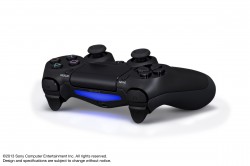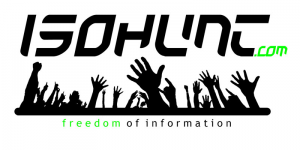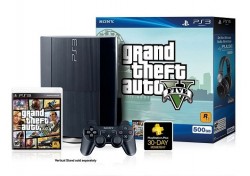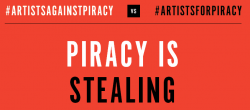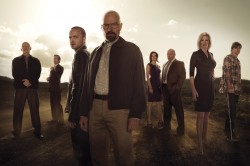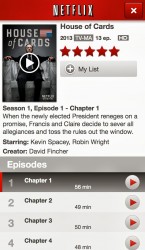If there’s one theme running through this week’s WNR, it’s that I’m doing my best to stretch the definition of “interesting” and “news”, trying to find something, anything, to write about. A non statement from Vince Gilligan, a dry report to the government and an earnings report (yes, a freaking earnings report), and a story about an upcoming Blu-ray player being region locked like most other Blu-ray players, makes up the bulk of this week’s news shenanigans.
Let’s get on with it for f-sakes.
![]()
The demise of isoHunt, confirmed this week when the website shut down for good, was one of the things that the MPAA was gloating about in its submission the Office of the USTR (US Trade Representatives) detailing Hollywood’s view on “notorious pirates”.
There’s nothing particularly interesting about the MPAA’s latest annual update (a story I might otherwise have skipped, if not for the lack of anything else interesting to write about), other than the removal of isoHunt, but a lot of the regulars this time now appear to have new domain names too (The Pirate Bay, moving to .sx, and KickassTorrents movie to .to). A visible response to the increasing use of domain seizures as part of a new global anti-piracy strategy. Despite the domain name changes, these sites are still popular, still “notorious” according to the MPAA, so nothing much has really changed. That’s because these sites are so popular, that people are willing to accommodate and adapt to new domain name, in a way they wouldn’t for most other websites. These sites have become brands (ironically, thanks to free promotion from the likes of the MPAA’s notorious pirates list), and once this happens, the actual domain name matters less.
—–
Breaking Bad creator Vince Gilligan has waded into the piracy debate by acknowledging that piracy has helped the show become as popular it is, but at the same time also warned that it is taking money out of the pockets of people working on the show. There is a growing trend even among industry types to acknowledge that, at the very least, it is simply a reflection and measure of the popularity of something. But very few are keen to admit to the positive effects of piracy.

Does piracy take money out of the pocket of the people behind Breaking Bad? You can help put it back by buying this awesome Blu-ray box set
It may be that Breaking Bad is pirated a lot because it is popular, but according to Gilligan, BB is popular, in a small part, because it is pirated a lot. Gilligan attributes this to “brand awareness”.
Gilligan also says that had all those pirated downloads been legal, it would have meant more money for the people who worked on the show, including himself. Maybe this is true in a perfect world where a chemistry teacher with cancer doesn’t have to become a drug lord to pay for his medical expenses and to provide for his family, but piracy does not always equal lost sale. It’s like saying if all the people who had already purchased the BB Blu-ray boxset went out and bought another copy, or two, or twenty-seven, then that would also mean more money to the wonderful people behind BB (and they would deserve it). To use another analogy, only because I’m severely sleep deprived at the moment, if I set up a street stall giving away free coffee to morning commuters, I can’t then go back and say that, had I not given it away for free, all of those people who had grabbed a cup would have paid for it. On the other hand, some will have, because coffee is something they want (and need). Just how many would pay, and how many still won’t, is at the heart of the debate.
This debate is pointless though, as we all know it’s impossible to get rid of piracy. Instead, the question should be “how do we make piracy irrelevant”, and there are ways to do this.
![]()
Netflix is doing alright for it self. The company has just announced that it has now more than 40 million subscribers, adding nearly 11 million new members in the last year. The international market for Netflix has become more important in the past year, with nearly a quarter of all subscribers now belonging to international markets.
Unfortunately, these international markets are still not yet profitable, despite more than a $100 million increase in revenue. Overall profit remains low at $32 million from a high revenue figure of more than $1.1 billion, but content acquisition costs are unlikely to drop any time soon.
Also likely to increase will be expenses for original content, with Netflix set to double their investment in 2014 (although still only 10% of their total content expenditure). The cost may be high, but Netflix seems to be getting good value from their investment, with Emmy awards to offer proof of the success of the strategy, and increased membership numbers too.
The company’s recent link-up with UK cable TV operator Virgin Media was also noted in the letter to shareholders. Netflix and cable TV operators are rivals normally (with Netflix winning quite handsomely at the moment), but this link-up could be a sign of the future. If you can’t beat them, join them, may be something cable operators (many of which also provide Internet services) will have to accept in the future.
![]()
Straddling the barrier between HD and gaming news is this quickie about the PS4’s Blu-ray player being region locked. Just like the PS3’s Blu-ray player, and every other Blu-ray player Sony has made. Slow news week or what? Next week’s breaking news: Xbox One Blu-ray player also region locked.
In other earth shattering news, the PS4’s DualShock 4 controller can be used with the PS3, but not all games. Granted, this one is slightly more interesting than the news above, and in the absence of PS3 backwards compatibility, at least something is sort of backwards (or is that forwards) compatible with the PS4. But you can’t play GTA V with the DS4 for some reason.
I think that’s all I have the energy for today. From lack of sleep and boredom, mostly. Will pray to the News Gods for something, anything, more interesting next week. Until then …

